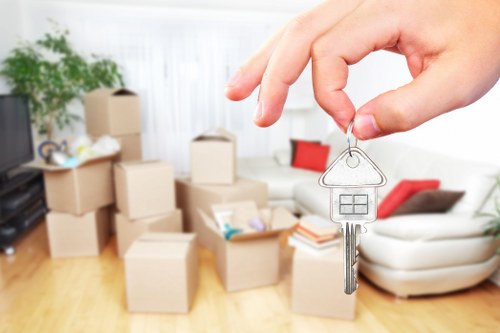Waste Removal in Reading: Comprehensive Guide
Understanding Waste Removal in Reading

Waste removal in Reading is a critical service that ensures the cleanliness and sustainability of the community. Proper waste management helps in maintaining public health, protecting the environment, and enhancing the quality of life for residents.
Reading offers various waste removal services tailored to meet the needs of its diverse population. From household waste collection to specialized recycling programs, the city is committed to effective waste management.
Understanding the different types of waste and the appropriate methods for their disposal is essential for everyone. This guide explores the key aspects of waste removal in Reading, providing valuable information for residents and businesses alike.
Types of Waste Managed

Effective waste management involves the classification and proper handling of various types of waste. In Reading, waste is categorized to ensure that each type is processed correctly.
The primary categories include household waste, recyclable materials, hazardous waste, and bulky items. Each category requires specific handling procedures to minimize environmental impact.
By segregating waste, Reading promotes recycling and reduces the amount of waste sent to landfills, fostering a more sustainable community.
Household Waste Collection

Household waste is collected regularly to keep neighborhoods clean and hygienic. Residents are provided with designated bins for different types of waste, making it easier to sort and dispose of trash responsibly.
The waste collection schedule is designed to accommodate the needs of the community, with frequent pickups to prevent accumulation of garbage.
Proper disposal of household waste helps in reducing pollution and conserving natural resources, contributing to the overall well-being of Reading.
Recycling Programs

Recycling is a cornerstone of Reading's waste management strategy. The city encourages residents to recycle materials such as paper, glass, plastic, and metal to reduce the strain on natural resources.
Specialized recycling centers are available for processing and reusing recyclable materials. These programs not only help in conserving resources but also create job opportunities within the community.
Engaging in recycling practices is a simple yet effective way for individuals to contribute to environmental conservation.
Hazardous Waste Disposal

Hazardous waste requires careful handling to prevent harm to people and the environment. Reading provides specialized services for the safe disposal of hazardous materials such as chemicals, batteries, and electronic waste.
Residents must follow specific guidelines when disposing of hazardous waste, ensuring that these materials are treated and disposed of in an environmentally responsible manner.
Proper hazardous waste management is crucial in preventing contamination and promoting public safety.
Bulky Item Collection
Large and bulky items, such as furniture and appliances, require special collection services. Reading offers scheduled pickups for bulky waste, making it convenient for residents to dispose of these items responsibly.
Residents can schedule bulky item pickups through the city's waste management system, ensuring that items are collected and processed without hassle.
Proper disposal of bulky items helps in maintaining the aesthetic appeal of neighborhoods and prevents cluttering of public spaces.
Waste Reduction Initiatives
Reading is committed to reducing waste through various initiatives aimed at minimizing the generation of waste and promoting sustainable practices.
Programs such as composting, waste education campaigns, and incentives for reducing waste encourage residents to adopt eco-friendly habits.
These initiatives play a pivotal role in creating a culture of sustainability and environmental responsibility within the community.
Commercial Waste Management
Businesses in Reading are required to adhere to specific waste management regulations to ensure responsible disposal of commercial waste.
Commercial waste management services include regular pickups, recycling programs, and specialized handling of industrial waste.
By complying with waste management regulations, businesses contribute to the cleanliness and sustainability of the local environment.
Local Waste Removal Services
In addition to city-provided services, several private waste removal companies operate in Reading, offering tailored solutions for different needs.
These services include scheduled pickups, emergency waste removal, and specialized handling of unique waste types.
Choosing the right waste removal service ensures that waste is managed efficiently and in accordance with local regulations.
Sustainable Practices in Waste Removal
Embracing sustainable practices is essential for effective waste management. Reading promotes the use of eco-friendly materials and methods to minimize environmental impact.
Initiatives such as reducing single-use plastics, promoting reusable materials, and supporting green technologies are integral to sustainable waste removal.
Adopting these practices helps in creating a healthier environment and fosters long-term sustainability.
Community Involvement
Engaging the community in waste management efforts is vital for the success of waste removal programs. Reading encourages residents to participate in recycling drives, clean-up events, and educational workshops.
Community involvement fosters a sense of ownership and responsibility towards maintaining a clean and sustainable environment.
By working together, the community can achieve significant progress in effective waste removal and environmental conservation.
Technology in Waste Removal
Advancements in technology play a crucial role in enhancing waste removal processes. Reading integrates modern technologies such as automated collection systems, waste tracking software, and advanced recycling technologies.
These technologies improve the efficiency and effectiveness of waste management, ensuring timely collection and processing of waste.
Leveraging technology contributes to smarter waste removal strategies and better resource management.
Environmental Impact
Proper waste removal significantly reduces the environmental footprint of the community. Effective waste management minimizes pollution, conserves natural resources, and supports biodiversity.
By reducing the amount of waste sent to landfills and promoting recycling, Reading contributes to a healthier and more sustainable environment.
Understanding the environmental benefits of waste removal underscores the importance of responsible waste management practices.
Regulations and Policies
Waste removal in Reading is governed by a set of regulations and policies designed to ensure safe and effective waste management.
These regulations outline the responsibilities of residents and businesses, setting standards for waste collection, recycling, and disposal.
Compliance with these policies is essential for maintaining public health and environmental standards.
Cost of Waste Removal Services
The cost of waste removal services in Reading varies based on the type of service and volume of waste. The city offers affordable rates for standard household waste collection, with additional fees for bulky items and specialized waste.
Residents can choose from different service plans to suit their needs and budget, ensuring that waste management remains accessible to everyone.
Transparent pricing and flexible options make it easier for residents to manage their waste responsibly without financial strain.
Benefits of Professional Waste Removal
Professional waste removal services offer numerous benefits, including efficiency, reliability, and compliance with environmental standards.
Trained personnel ensure that waste is handled safely and processed correctly, reducing the risk of accidents and environmental harm.
By utilizing professional services, residents and businesses can focus on their activities while leaving waste management to the experts.
Challenges in Waste Removal
Waste removal faces several challenges, including increasing waste volumes, limited recycling facilities, and public compliance.
Addressing these challenges requires innovative solutions, community cooperation, and continuous improvement of waste management systems.
Overcoming these obstacles is essential for maintaining effective waste removal and ensuring the sustainability of the community.
Future of Waste Removal in Reading
The future of waste removal in Reading is focused on sustainability, efficiency, and technological advancements. Plans include expanding recycling programs, reducing landfill dependencies, and incorporating smart technologies.
Continuous investment in waste management infrastructure and community education will drive improvements and foster a culture of environmental responsibility.
By embracing innovation and sustainability, Reading aims to set a benchmark for effective waste removal practices.
Nearby Areas and Their Waste Removal Services
- Maidenhead: Located just 5 miles from Reading, Maidenhead offers efficient waste collection and recycling services.
- Wokingham: 7 miles away, Wokingham provides comprehensive waste management solutions tailored to residential and commercial needs.
- Bracknell: 9 miles from Reading, Bracknell emphasizes sustainable waste practices and advanced recycling programs.
- Palmer Park: Situated 3 miles from Reading, Palmer Park focuses on community-driven waste reduction initiatives.
- Greenford: 4 miles away, Greenford offers specialized hazardous waste disposal services.
- Earley: Just 2 miles from Reading, Earley provides regular household waste collection and bulky item pickups.
- Tilehurst: 1 mile from Reading, Tilehurst emphasizes educational programs on effective waste management.
- Finchampstead: 6 miles away, Finchampstead offers sustainable waste removal services and community recycling centers.
- Sonning: Located 8 miles from Reading, Sonning provides eco-friendly waste disposal options and green waste initiatives.
- 45& Other Areas: Including Caversham, Shinfield, and other neighboring regions, each area offers tailored waste removal services to meet the unique needs of their communities.
Frequently Asked Questions
1. How often is household waste collected in Reading?
Household waste is typically collected once a week in Reading, with additional pickups available for bulky items upon request.
2. What materials are accepted in Reading's recycling program?
Reading's recycling program accepts paper, cardboard, glass, plastics, and metal cans. Electronic waste and hazardous materials require special handling.
3. How can I dispose of hazardous waste in Reading?
Hazardous waste can be disposed of through designated collection centers or by scheduling a special pickup with the waste management department.
4. Are there any fees for bulky item collection?
Yes, there is a nominal fee for bulky item collection, which varies depending on the size and type of the item. Residents can contact the waste removal service for specific pricing.
5. How can I reduce my waste footprint in Reading?
Residents can reduce their waste footprint by recycling, composting, minimizing single-use plastics, and participating in community clean-up events.